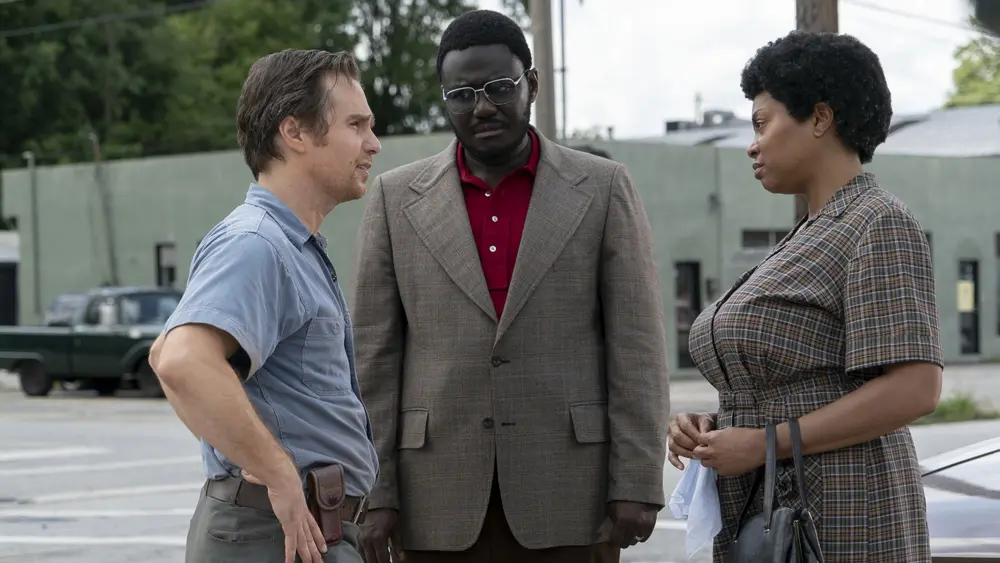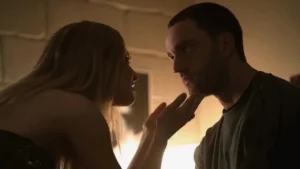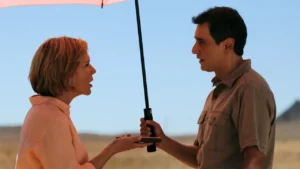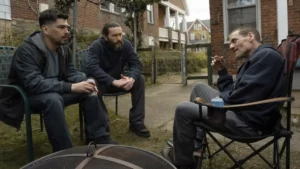Summary
The Hollywood studio system has taken civil rights films in the direction of the exploitation genre, which doesn’t mean The Best of Enemies is bad medicine; it just makes it a placebo.
I recently watched the exploitation film Dragged Across Concrete, where I thought the director took the genre and made it an art form. The recent trend of films based on civil rights events and original works of racial disparity has caused studios to sanitize those same films into Hollywood feel-good or family-friendly pictures. In short, the studio system has used this subject as the new exploitation genre. That doesn’t mean The Best of Enemies isn’t a good or entertaining film; it just makes it the placebo of medicine.
The Best of Enemies is based on the friendship — the “unlikely” relationship is practically a cliché — between the real-life civil rights activist Ann Atwater (Taraji P. Henson, in fine form here) and the local chapter president C.P. Ellis (Sam Rockwell), an award-winning one at that (no joke: he is awarded, per the film, The Cyclops of the Year award, that is handed out by the KKK to its chapter presidents). They are brought together after the local school zoned off for the African-American kids was set on fire and Atwater’s fight to desegregate the schools in Durham, North Carolina. They take part in a charrette, a meeting in which all stakeholders in a project attempt to resolve conflicts and map out solutions, led by Bill Riddick (Rogue One’s Babou Ceesay) to bring the two sides together then resolve their issues for the next two weeks (yup).
The Best of Enemies was written and directed by Robin Bissell (a producer of The Hunger Games) that he adapted from the book The Best of Enemies: Race and Redemption in the New South by Osha Gray Davidson. This is his directorial debut, and it’s a misguided one. Trying to humanize a racist bigot while making you feel for a heinous character is an interesting concept; the issue is they try to do that before he sees the error of his ways, not after.
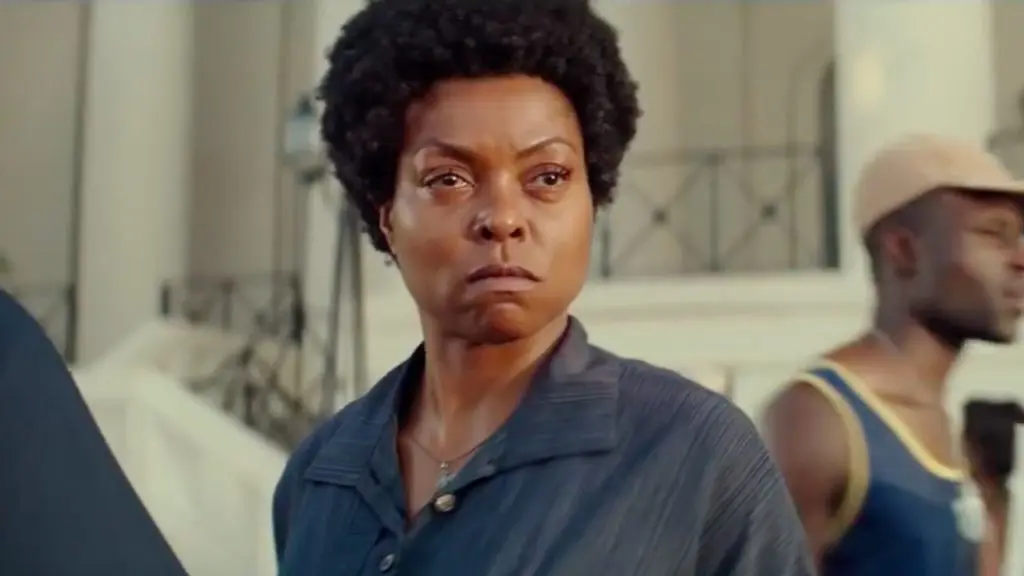
The cast is strong, but the script is not. Taraji P. Henson reveals in her homespun role as a local civil-rights activist who takes a phone and knocks it up against the side of a local white politician (oh, look, she’s sassy). At the same time, Rockwell does a nice job showing the hidden liberal soul that he has yet to find (oh, look, he actually has a heart of gold). Anne Heche plays the token role of a wife who is loyal yet ashamed of her husband.
There are two supporting turns worth mentioning; Gilbert Glenn Brown delivers a powerful speech as a real-life figure Howard Clement about the differences between the children in his community and Ellis’s. Then there is Ceesay’s portrayal of Bill Riddick, the man who runs the charrette. His portrayal of Riddick is an interesting one. A man caught between members of the KKK, who are clearly against wanting an African-American man telling them how to live their lives, and the other side of the community calls him an Uncle Tom.
Therein lies the point– The Best of Enemies is a classic example of forcing a story to cater around its stars when the most interesting part about the film, the charrette, is relegated to a secondary story. Bissell’s film would have been more engaging if it started and ended from the perspective of the real-life Bill Riddick, acting as the lawyer negotiating between the two characters’ real-life subjects. This film was already covered well in the documentary Best of Enemies in 2015.
Far too much time is wasted on both characters arguing over issues the audience can only side one way with. They must sit through an attempt to humanize a local leader of a perpetually racist organization. The film would have been a far better one coming from a perspective that few films have ever delved deeply into (even if the role of the charrette was just an exercise in politics).
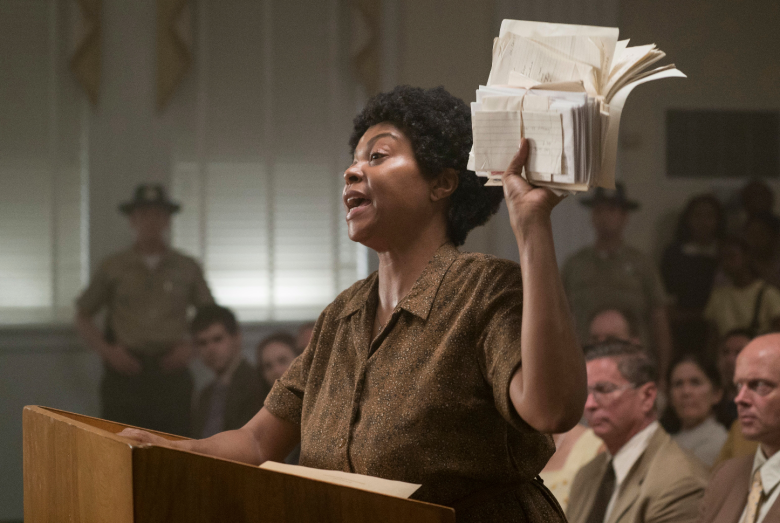
For the film’s flaws, all indications show that it was factual for the most part. Unlike Green Book, where the family of Don Shirley called foul on the real-life friendship with Tony the Lip, Atwater and Ellis are both on record as being friends up until the end. Ellis, in the film, admits he had to pay for his sins as a man who, early in life, was never prouder of himself than when he obtained his KKK member card, then coming to the cold, hard truth while having his mind changed during a two-week period during the summer of 1971. The film is well-made, and the production design is flawless, down to the vintage look, even capturing the humid Southern heat and the lack of air conditioning we are all so used to today.
When you break the film down, its message is sincere about changing the hearts and minds of one man at a time about racial bigotry, which is admirable. At the heart of the matter, the film wants to tell a story about how one woman’s efforts changed one man’s heart and mind.
Ultimately, it takes a historically documented incident with a feel-good spin in the hopes of attracting a larger audience. The lack of equal treatment for Bill Riddick’s role in the desegregation of the Durham school system, though, makes me think the filmmakers missed the point of the story entirely.
Side note — one of my biggest pet peeves in films is product placement. While you must admire the attempt of a retro look of a cup of coffee that has a Coke advertisement on it, no matter the angle that toggles between Henson and Rockwell, it is clearly moving, so you can read Coca-Cola (I guess Coke does bring people together).

